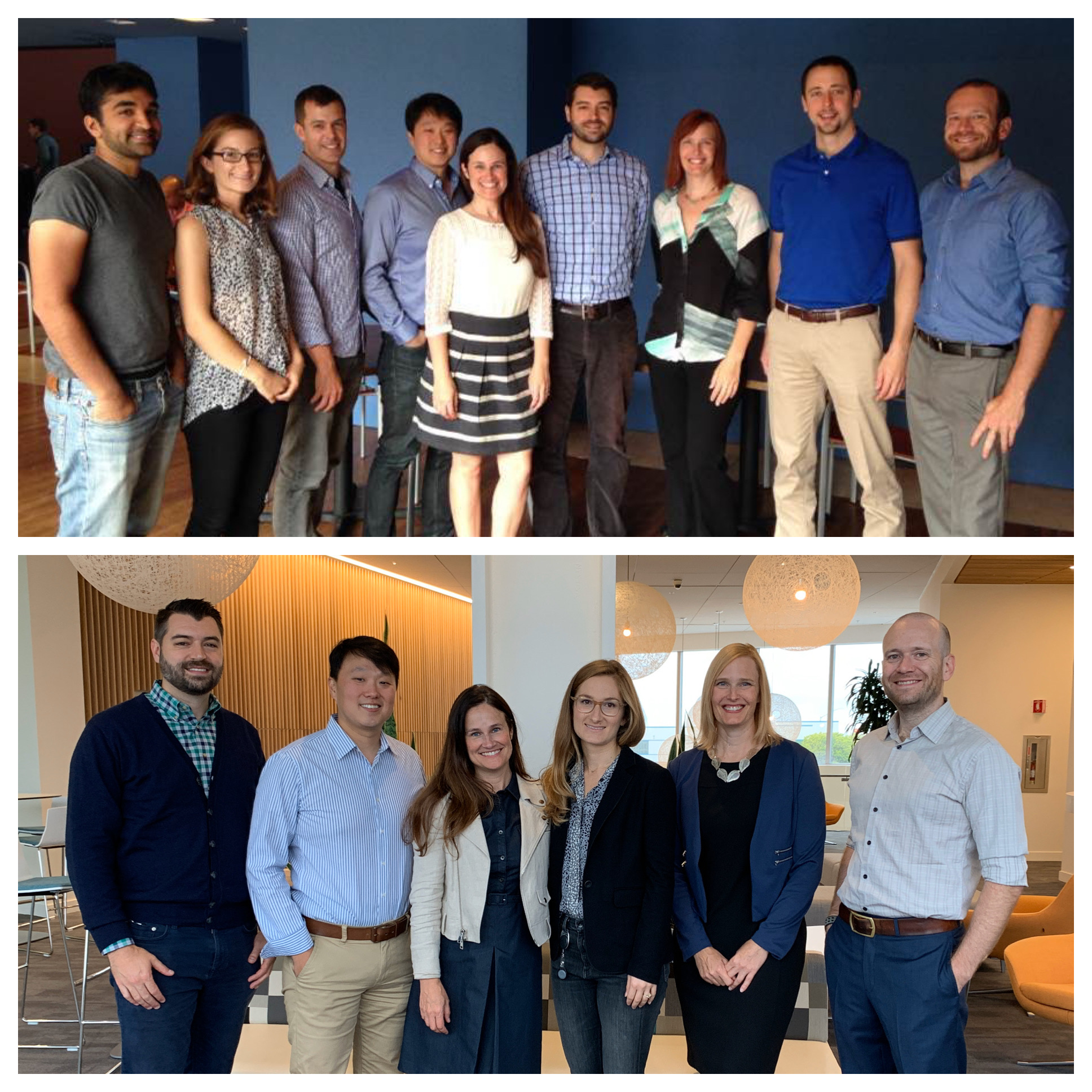
21 October 2019
In October 2014, Illumina Accelerator announced the inaugural class of companies to join the world’s first business accelerator focused on creating an innovation ecosystem for the genomics industry. Illumina Accelerator’s goal is to build high-growth, venture-backable companies focused on advancing breakthrough applications in genomics to transform human health and beyond. Over the past half-decade, it has built a portfolio of 33 company graduates and helped them raise over $300 million in funding, collectively.
Led by Amanda Cashin, Ph.D. and Illumina’s Chief Technology Officer Mostafa Ronaghi, Ph.D., Illumina Accelerator made its first investments in three startups who showed great potential to deliver innovative and breakthrough genomics applications. Fast forward five years and nine investment cycles, and the first three investments continue to thrive.
Encoded Therapeutics is a biotech company developing precision gene therapies for severe genetic disorders by leveraging genomics-based technologies. The company’s lead program is focused on Dravet Syndrome, an intractable and severe form of genetic epilepsy. Encoded is developing a one-time, cell type selective gene therapy to address the underlying genetic mechanism of the disease. Since graduating from Illumina Accelerator, Encoded has raised over $158 million in funding from biotech investors to bring the company’s vision to patients.
“The support we have received from our visionary group of investors, including Illumina Accelerator, is allowing Encoded to mature into a fully-integrated therapeutics company and establish itself as a leading innovator in gene therapy,” said Stephanie Tagliatela, Co-founder and Chief Scientific Officer, Encoded Therapeutics.
Epibiome, Inc. (now Locus Biosciences, Inc.)
Founded in 2013, Epibiome developed a high-throughput automated bacteriophage (“phage”) discovery platform integrating next-generation sequencing, bioinformatics, machine learning, and directed evolution technologies to rapidly create phage cocktails targeting pathogens with high unmet medical need. In July 2018, it was acquired by Locus Biosciences, a biotechnology company that develops CRISPR-engineered precision antibacterial products. Pairing EpiBiome’s phage isolation and characterization capability with Locus’s CRISPR-based synthetic biology platform and clinical development team, created a combined entity poised to develop therapeutics to treat antibiotic-resistant bacterial infections and microbiome-associated diseases, which have become major problems in health care. Earlier this year, Locus formed a collaboration with Janssen, worth approximately $818 million.
“During our time at Illumina Accelerator, we worked to build a one-of-a-kind, high-throughput phage discovery platform, which has allowed us to create phage cocktails that can selectively remove a target bacterial species while leaving all other bacteria alone,” said Aeron Hammack, Ph.D., Co-founder, EpiBiome.
Xcell Biosciences is a San Francisco-based life sciences company with a novel cell therapy development platform designed to significantly enhance the clinical performance of immune cell therapies. So far, the company has raised $16 million and has grown to a team of 15. Xcell’s core technology is an IP-protected cell manufacturing platform which benefits from novel and proprietary environmental control elements and a range of real-time sensor inputs. The platform enables enhancement of immune cell phenotype and function towards a defined target profile during clinical production.
“When we started at Illumina Accelerator, we were at the beginning stages of our research with only a breadboard instrument and a narrow set of supporting data. We focused on culturing both tumor cells and immune cells within the tumor microenvironment and saw the tremendous value of the information contained within those cells for decision-making in the clinic,” said Brian Feth, Co-founder and Chief Executive Officer, Xcell Biosciences.
Co-founder of Illumina Accelerator, Mostafa Ronaghi said, “Over the last five years, we’ve worked to build Illumina Accelerator’s best-in-class reputation with a network of smart and innovative companies, which began with our first class of genomics startups. This particular group set the bar high, and it’s exciting to see not only how far they’ve come but how far they’re still working to go.”
The tenth funding cycle
Illumina Accelerator San Francisco Bay Area welcomes five promising companies to its tenth cycle of investments, providing each company with access to seed investment, business and scientific guidance, access to Illumina’s sequencing systems and reagents, and fully operational lab space for six months. The tenth cycle includes:
- 4Basecare Genomics Pte Ltd, a precision oncology company in India and Singapore, is developing genomics enabled personalized cancer diagnostics, data sets and treatment guidance solutions for cancer patients in Asia.
- Felix Biotechnology, Inc., a biotherapeutic company from the San Francisco Bay Area, is focused on accelerating the deployment of novel biotherapeutics targeting urgent microbial challenges in human health and beyond.
- Jenthera Therapeutics Inc., a gene editing therapeutics company from Montreal, Canada, is developing next-generation CRISPR therapeutics with its novel full spectrum editing system for precision gene alteration and disruption capabilities.
- Lassogen, Inc., a biotech company located in San Diego, CA, is developing a proprietary platform involving lasso peptides as a novel therapeutic modality to diagnose and treat disease.
- Stem Pharm, Inc., a tools company from Madison, WI, provides advanced biomaterials for cell and tissue manufacturing with applications in drug discovery, cell therapy and regenerative medicine.
“With every cycle, we’ve seen another level of excellence in both the ideas and the ambition of these startups,” said Amanda Cashin, Co-Founder and Global Head of Illumina Accelerator. “With our recent global expansion to Cambridge, UK, we’re able to expand our geographical reach and create even more genomics-driven startups.”
In July 2019, Illumina Accelerator announced its global expansion to Cambridge, UK, broadening its international reach offering a new site for entrepreneurs across Europe, Africa, the Middle East and beyond to build genomics driven startups and expand the innovation ecosystem. Through a single, global application process, Illumina Accelerator will select up to five companies in both the San Francisco Bay Area and Cambridge, UK to participate in two, six-month cycles per year.
Applications for the eleventh cycle of Illumina Accelerator San Francisco Bay Area and the inaugural funding cycle of Illumina Accelerator Cambridge are due on November 1. To learn more and apply, please visit our website.


